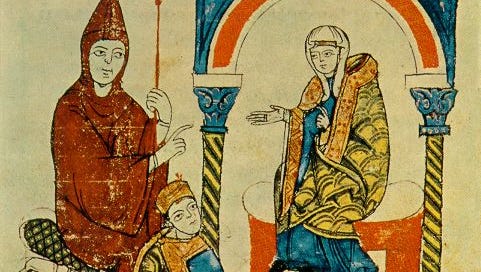Investiture Conflict 2.0: Experts vs. Market Populists
The Crown and the Church in the 21st Century
Theology and politics go hand in hand. Theological ideas give rise to political ones and political ideas carry an implicit view about the sovereignty of the cosmos. In a world in which God functions as the “King of Kings,” it is not a far leap to a doctrine of the divine right of kings. And in a world in which, theoretically, everyone is equal, it is no…
Keep reading with a 7-day free trial
Subscribe to What Is Called Thinking? to keep reading this post and get 7 days of free access to the full post archives.



